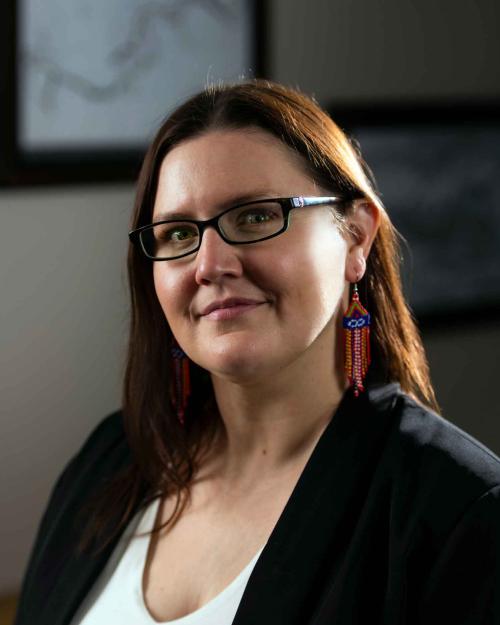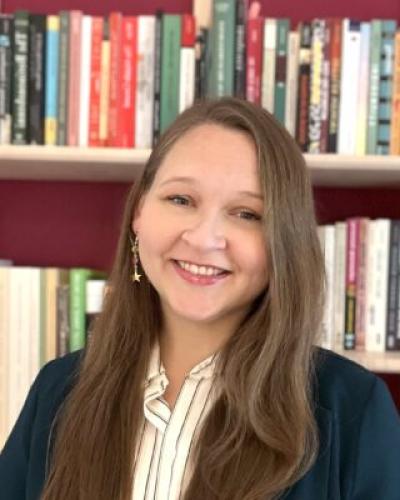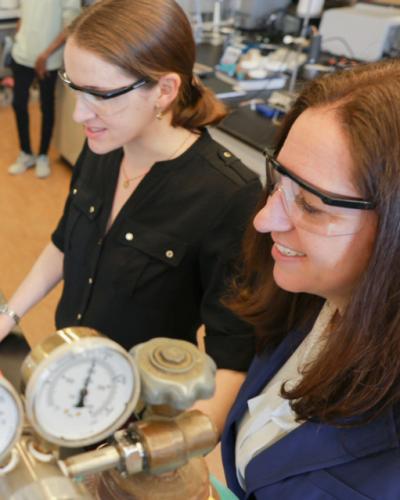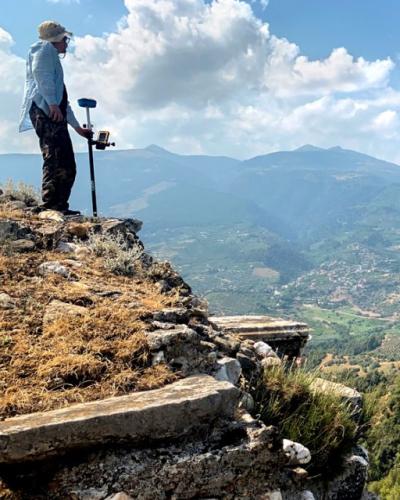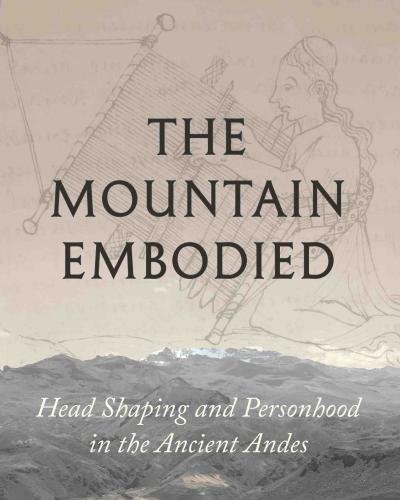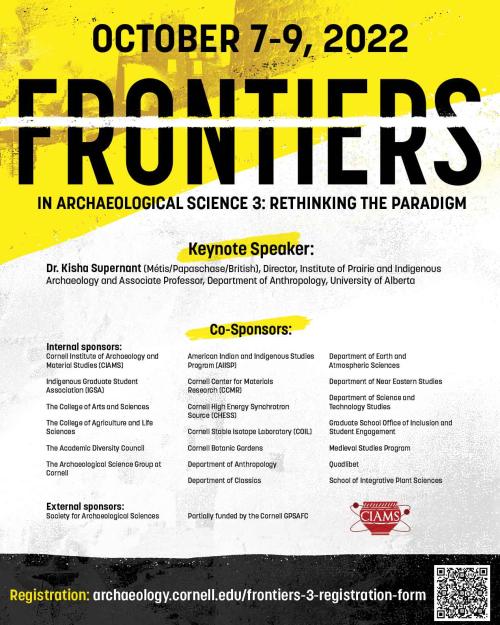Cornell will host an archaeology conference in October focusing on ethics and social justice in the archaeological sciences – the areas of archaeology that utilize techniques and approaches from STEM.
“Frontiers in Archaeological Sciences 3: Rethinking the Paradigm” will take place Oct. 7-9 and feature a keynote address by Dr. Kisha Supernant, director of the Institute of Prairie and Indigenous Archaeology and associate professor in the Department of Anthropology at the University of Alberta, Canada.
"The topic of the Frontiers 3 conference reflects an ongoing conversation about knowledge, power and the role of science in telling stories about the past,” Supernant said. “Several high-profile cases around the legacy of archaeological sciences over the past few years have brought these issues to the forefront."
The conference is hosted by The Archaeological Science Group at Cornell, the Cornell Institute of Archaeology and Materials Studies (CIAMS), and the CIAMS Anti-colonialism and Anti-racism Interest Group (ARCO).
“The Archaeological Science Group has developed an approach to discussing current research where we consider the science, archaeology and ethics in what we’re reading — and in recent years ethics and social justice have come strongly to the forefront, as archaeologists seek to confront the exploitative colonialist and imperialist origins of our discipline,” said Rebecca Gerdes, a Cornell doctoral candidate in classics concentrating in classical archaeology and chair of the conference organizing committee. “We saw this conference as a way to expand the conversation beyond Cornell, by facilitating conversations with scholars who are leading the way in centering ethics and justice in the archaeological sciences.”
The Frontiers conferences began in 2017, bringing together senior scholars and up-and-coming researchers to showcase cutting-edge research in all applications of STEM techniques to archaeology.
“The conference brings together a diversity of scholars in differing sub-fields, a variety of cutting-edge theoretical and methodological approaches, and both senior and junior scholars,” said Sabrina Agarwal, one of the conference speakers. “The theme of this conference is aimed to tackle the greatest challenges to archaeology today as we struggle to envision a science that can go beyond its colonial roots.”
In collaboration with the Indigenous Graduate Student Association (IGSA), one of the major co-sponsors of the conference, organizers chose to add a strikethrough to the conference name this year, recognizing that the word “Frontier” is rooted in a history of white-settler colonialism.
“We hope to convey that the questions that practitioners of the archaeological sciences ask are also fundamentally intertwined with questions of justice, responsibility, and human flourishing, and that scientific innovation in archaeology – which is often the focus of ‘archaeological science’ – cannot be divorced from issues of justice,” Gerdes said.
Marina Zafiris, a member of the IGSA, said the group proposed the name change when asked to sponsor the conference.
"We do not wish to brush the naming conventions of the conference series under the rug simply by replacing the word ‘Frontiers.’ Rather, with the active strikethrough of Frontiers, we hope to invoke a generative anti-colonial discomfort that will help us confront these biases and contribute to the overall goals of this conference," the group wrote on the conference website.
IGSA will also be sponsoring a meal made by Mohawk chef Dakota Elderbroom for conference participants. “We wanted to support the Indigenous and marginalized scholars that are attending this conference by making them feel welcome and in community while at Cornell,” Zafiris said.
Other speakers at the event include:
- Sabrina Agarwal, professor, Department of Anthropology, University of California, Berkeley
- Shadreck Chirikure, professor and head of the Department of Archaeology, University of Cape Town, South Africa, and British Academy Global Professor, University of Oxford, UK
- Bedone Mugabe, graduate student, University of Cape Town, South Africa
- Alexia Smith, associate professor, Department of Anthropology, University of Connecticut
- S. Margaret Spivey-Faulkner (Pee Dee), assistant professor, Department of Anthropology, University of Alberta, Canada
- Trent Trombley, PhD candidate, Department of Anthropology, University of California, Berkeley
“All of the scientific work we do is informed by a theoretical perspective, whether we make that explicit or not,” Smith said. “It is wonderful to see conferences like this that call for honest accountability, elevating the importance of conversations about human rights, data sovereignty and enhanced communication.”
The conference will begin Oct. 7 with a welcome and continue with presentations and posters on Oct. 8. Supernant’s keynote lecture is at 7 p.m. Oct. 8, in Rhodes-Rawlings Auditorium, Klarman Hall, and is open to the public.

